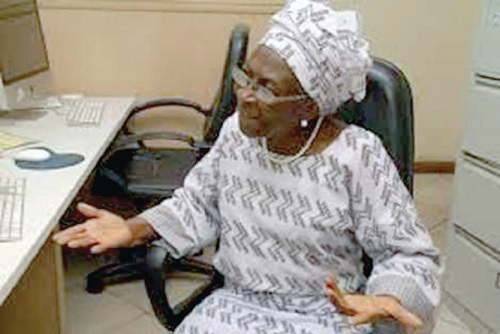
Women behind the Kwame Nkrumah revolution
Since Independence Day and International Women’s Day fall within the same week in Ghana, what better time to remember some of the women who amplified Kwame Nkrumah’s impact on Ghana and the African continent.
Advertisement
We can think of them as the women who helped Nkrumah live, finance, propagate and publish his vision of a liberated Ghana and Africa.
Live the vision
Nkrumah’s marriage to the Egyptian beauty, Fathia Halim Rizk, vividly symbolised the dream of uniting Black Africa with the Arabised north of the continent.
Today, their three children, Gamal Gorkeh, Samia and Sekou are the living embodiments of Africa’s unification.
Fathia fata Nkrumah to wit, “Fathia suits Nkrumah”, the kente cloth named in her honour by weavers in Bonwire, Asante, remains one of the most enduringly popular classic kente designs of all times.
In the subtle tradition of kente weavers, the original cloth from which it was renamed carried a proverbial name meaning, “One man does not make a council”.
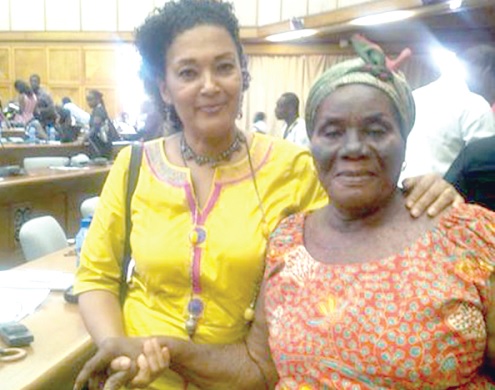
Dede Amanor-Wilks (left) with Ghana’s first female tractor driver, Auntie Borkor, at Accra International Conference Centre
And indeed, without the women behind him, including Fathia herself, Nkrumah may never have formed the many councils he did.
Finance the vision
A major force in Nkrumah’s campaigns were the market women who formed the backbone of the CPP and helped to finance his vision.
My mother’s generation had thrilling stories about the two market women who helped cement his leadership of the country.
They were popularly known as Dedei Ashikishan and Akua Shorshorshor, both queens of Makola Market in central Accra.
Of the two, less is known about Akua Shorshorshor. Her real name was Mary Ayeley Laryea and she was a founder member and treasurer of the Convention People’s Party (CPP).
She was president of the Makola Market Women Textile Traders Association and president of the Market Women’s Association. The only explanation I have ever heard for her nickname “Shorshorshor” was told me by my mother, who was a teacher in Labadi during the heyday of these two women.
She explained how Akua Shorshorshor captivated people with her manner of displaying her opulently long, brand-new wax print cloths.
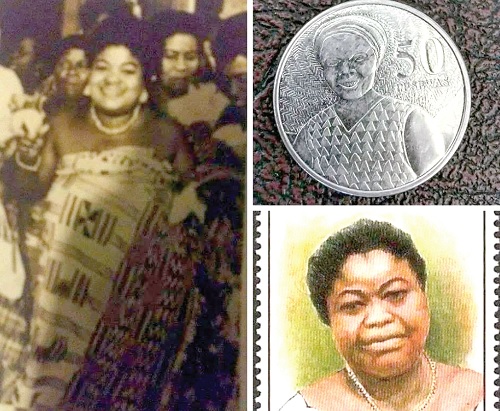
These would touch the ground as she swished through the streets of central Accra, producing the onomatopoeic sound ‘shorshorshor’.
As my mother explained it, what excited everyone was the idea that Akua Shorshorshor was now so wealthy and successful, it did not matter if her cloth swept the ground and became dirty because she could easily buy a new one!
A third market woman who is understood to have worked with these two women to organise Nkrumah’s campaigns was Agnes Oforiwa Tagoe-Quarcoopome.
Queen
But the queen of the market queens behind Nkrumah was Dedei Ashikishan and today researchers are piecing together more information about her life.
Born Rebecca Naa Dedei Aryeetey in 1923 in Osu, Dedei Ashikishan grew up in colonial Jamestown, went into the flour business after primary school and earned her nickname as she rose to become the queen of the flour sellers at Makola Market and, by extension Accra and the entire country.
Ashikishan means ‘flour’ in Ga.
With the wealth she had created by age 30, Dedei Ashikishan became the chief financier of the CPP after Nkrumah was released from jail in 1951.
Seen as a true nationalist, she financed Nkrumah to win the Ashiedu Keteke legislative council seat in central Accra, campaigning against her kinsman, Odarkwei Obetsebi-Lamptey.
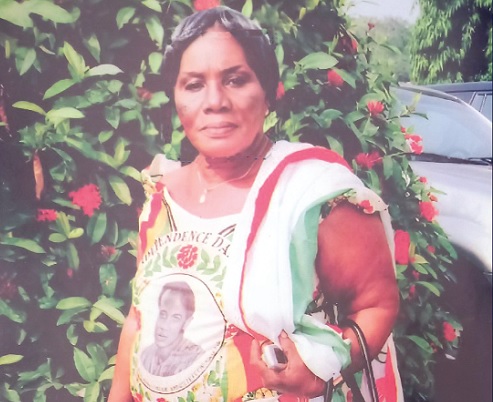
The seat was seen as the nerve centre of the Ga-Dangme Confederacy and crucial to his bid to become the first Prime Minister of Ghana.
She also led CPP women’s activities from her mansion in Kokomlemle.
At 38, her life ended tragically when she was believed to have been poisoned by a political rival while attending a CPP function with Nkrumah in Ho in June 1961.
Despite this untimely end, Dedei Ashikishan had long caught the imagination of Ghanaians and has been immortalised.
Her image is etched on the 50 pesewa note and she features on a national postage stamp.
And most heart-warmingly, today schoolchildren as young as 8 years or 9 years old can tell you something about Dedei Ashikishan’s contribution to history.
Little wonder then that Ghana’s market women are often touted as an economic force unrivalled on the African continent, though to be fair, it was always the market queens, rather than the ordinary market women, who commanded such destiny-changing fortunes.
Propagate the vision
Nkrumah was so far ahead of his time that as an early champion of affirmative action, in 1960 he appointed 10 women to the 100-member strong, first Parliament of the First Republic.
Among them was Lucy Anin, aged just 22 when she was called to be interviewed by the mighty Osagyefo. Nkrumah was so impressed by her frank and self-possessed nature that he immediately recommended she run unopposed as MP representing the Brong Ahafo Region.
Until now, Auntie Lucy has been a highly active member of the CPP, vocal on television and radio, railing against the un-Nkrumaist policies of the times, defending Nkrumah’s reputation and supporting CPP women candidates.
She was often in the company of similarly die-hard, Nkrumaist Comfort Borkor Mensah, Ghana’s first female tractor driver, who died in 2022 aged 82.
As an errand girl to a close friend of Nkrumah, the young Borkor once delivered sensitive information wrapped in toilet paper to Nkrumah, then behind bars at Ussher Fort prison.
The two women rarely missed an opportunity to create a rally atmosphere at any public gathering, while extolling the virtues of Nkrumah.
Never shy to remind Ghana’s two big political parties that they are still struggling to outdo Nkrumah in terms of women’s political representation, Auntie Lucy’s challenge should never be far from our minds.
Publish the vision
One final mention must go to June Milne, Nkrumah’s publisher and literary executrix who died in 2018 aged 98.
It was June Milne who meticulously edited and published Nkrumah’s books, recorded Nkrumah’s years in exile in Guinea-Conakry, and published the insightful book ‘The Conakry Years’.
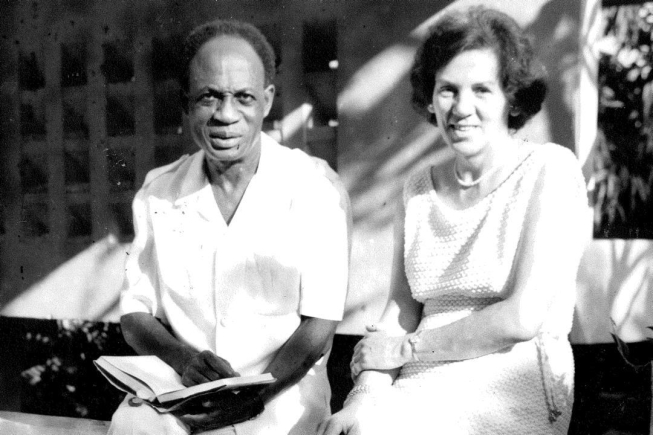
Despite June Milne’s immense and painstaking work to ensure Nkrumah’s works would be widely available through Panaf Books, set up by Nkrumah in 1968, and that the legacy of his ideas should not be forgotten, this is not really the case in Ghana.
Though Nkrumah is lauded all over Africa and the diaspora, in his own country his published works are not widely available and do not form part of the school curriculum here.
As we celebrate International Women’s Day this week, perhaps this is something we women will start a campaign about in the best tradition of the women featured here, who in their various ways led us to this point in our history.
In the early days of the CPP, women such as Akua Asabea toured the country to address large rallies with Nkrumah’s message of “Independence Now”.
In May 1951, the CPP appointed four women as propaganda secretaries to establish the CPP Women’s League.
They were Hanna Cudjoe, Ama Nkrumah, Leticia Quaye and Sophia Doku.
The table below is the list of 10 women elected unopposed to the First Parliament in 1960, plus one woman minister appointed in 1965.

In 1965, Nkrumah appointed Susan Al-Hassan as Minister of Social Welfare and Community Development.
In June 1960 after the passing of the Representation of the People (Women Members) Bill, 10 women were elected unopposed to Parliament.




